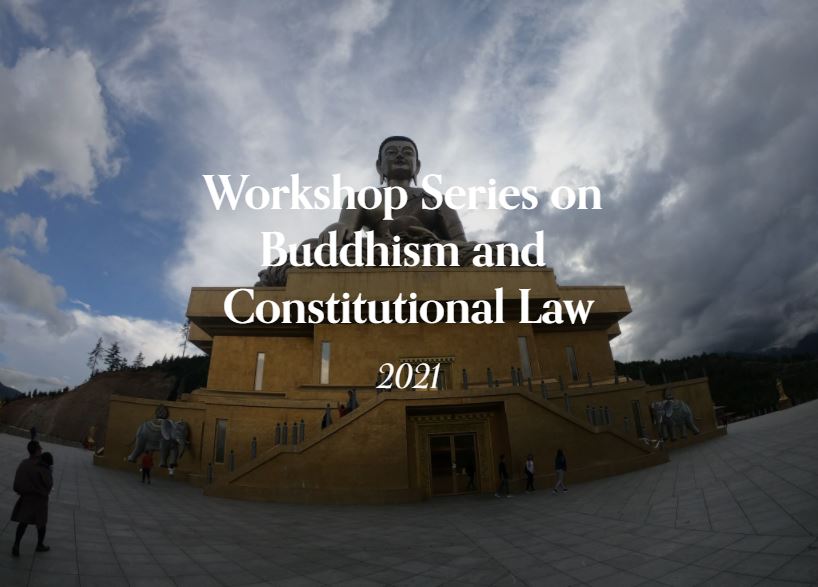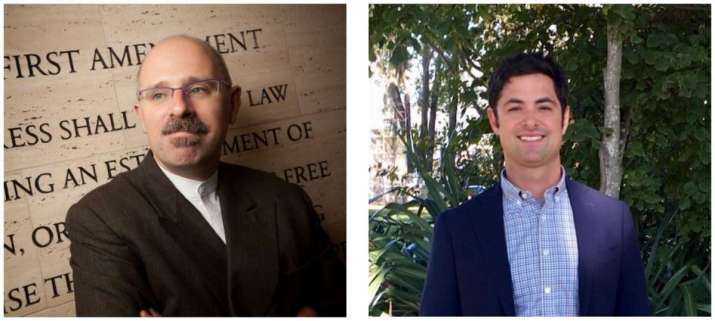
In a series of weekly workshops beginning 14 January, scholars from around the world will discuss comparative constitutional studies and Buddhist legal thought. Workshop sessions are scheduled to run for eight weeks. According to organizers, while the intersection of secular law and religions such as Hinduism, Islam, and Christianity has been heavily researched in recent decades, Buddhism has so far been left out of the conversation. This series of workshops seeks to alleviate that gap, featuring research on historical as well as contemporary intersections of Buddhism and national legal codes.
The conference is sponsored by the University of Chicago and the American Bar Foundation and organized by Dr. Tom Ginsburg, the Leo Spitz Professor of International Law at the University of Chicago, and Dr. Ben Schonthal, professor of Buddhism and Asian religions at the University of Otago in New Zealand. The workshop is funded in part by a grant from the National Science Foundation.

Scholars from diverse areas of study and disciplines will join together in this workshop to discuss the topic from as many perspectives as possible, including several professors of law and scholars of Buddhism from on diverse geographical areas, including China, India, Mongolia, Myanmar, Sri Lanka, Thailand, and Tibet, as well as scholars of colonialism, anthropology, and politics. Among them will be Dr. Jessica Main, a scholar of Buddhist ethics who began her work at the University of British Columbia (UBC) in 2009 as the Tung Lin Kok Yuen Canada Foundation chair and director of UBC’s Buddhism and Contemporary Society Program.*
According to the workshop’s website:
It will consider the following questions: What have been the roles of Buddhist monks, lay organizations and activist groups in affecting constitutional changes? In what ways might processes of making and implementing constitutional law transform the practice and institutions of Buddhism? Do existing models in the study of religion and constitutional law adequately explain the dynamics of Buddhism and constitutional law in Asia? How do Buddhist-inspired interpretations of public law differ from those of other interpretative traditions? Are there links across borders in the region, either in terms of borrowed concepts or religious networks, that shape constitutional thought and action? What historical antecedents and Buddhist doctrinal principles help us predict or understand these trends? (Buddhism and Comparative Constitutional Law)
The first workshop, titled “Doctrinal and Historical Underpinnings,” will be held on Thursday, 14 January at 2pm Eastern Standard Time, which is 15 January 3am Hong Kong time. The second session, “Buddhism and Constitutional Change in Thailand,” will be at 8pm EST on 27 January, or 10am in Hong Kong on 28 January. Sessions are scheduled to follow after that each week for a total of eight weeks.
The eighth section will feature two roundtable discussions, one led by Dr. Ran Hirschl discussing religion and comparative constitutional law, Dr. Asanga Welikala discussing religion and constitutional history in Commonwealth contexts, and Dr. Deepa Das Acevedo discussing religion and law in South(ern) Asia. The second roundtable will feature scholars offering comparative perspectives from Hinduism, Catholic Canon law, and Islam, as well as a focus on the topic of disestablishment.
Registration and contact information is available on the workshop’s website.
* In 2014, the program was renamed The Robert H. N. Ho Family Foundation Program in Buddhism and Contemporary Society.
See more












